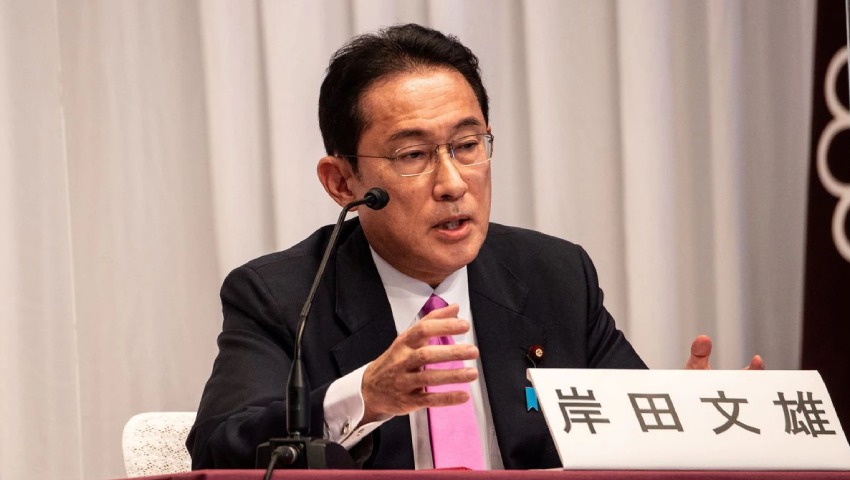The transfer of American nuclear technologies to Australia within the AUKUS pact sparked discussion in Japan about the need to switch the nation’s fleet to nuclear power and the general development of nuclear technologies, writes Alan Callow.
To continue reading the rest of this article, please log in.
Create free account to get unlimited news articles and more!
Despite the active militarisation of the Japan Self-Defense Forces, Japanese society still reacts painfully to any mention of the word "nuclear". This reaction can be is no surprise since the Japanese are the only people in the world who have experienced the devastating power of nuclear weapons first hand. What position will the new government take on this issue?
Kishida's pre-election comments
On 4 October 2021, Fumio Kishida was elected as the new prime minister of Japan. During the race, then candidate Kishida avoided answering the question about the nuclear prospects of the Japanese fleet, speaking only about the need to improve the service conditions of Japanese sailors. Kishida's uncertainty on such a sensitive issue is easily explained by his unwillingness to weaken its pre-election positions. However, as the prime minister, he will have to decide whether to develop nuclear military technologies.
Public pressure
Pacifists within Japan dealt a preventive blow to the nuclear modernisation of the Japanese navy. Activist Setsuko Thurlow, who survived the bombing of Hiroshima in 1945, sent a letter to the newly elected Prime Minister calling for Japan to join the Treaty on the Prohibition of Nuclear Weapons (TPNV). In this letter she also reminded the new leader of his pre-election promise to work towards creating a world without nuclear weapons.
Political support
Mayor of Hiroshima Prefecture Kazuimi Matsui supported Thurlow’s opinion. The official expressed hope that the new government would become an observer at the conference of the parties to the UN Treaty on the Prohibition of Nuclear Weapons. In addition, Tokyo's refusal to build nuclear-powered submarines will enhance the image of the country often accused of unjustified militarisation.
Further, secretary general of the Confederation of Atomic Bomb Survivors Tanaka Terumi called it reasonable to join TPNV to reduce regional tensions and optimise defence expenditure.
Kishida from Hiroshima
Moreover, Fumio Kishida seems to share the position of opponents to nuclear weapons. This may be influenced by the fact that the prime minister grew up in a family of politicians from Hiroshima prefecture, and his nuclear disarmament plans let him gain popularity among the general population.
Indo-Pacific tensions
Nevertheless, public scepticism and Kishida’s anti-nuclear background go against the trend towards military opposition to the PRC in the Indo-Pacific region. The nation amended the Japanese constitution and changed their military doctrine in order to strengthen the concept of US-Japanese deterrence to the PRC. In light of the need for increased naval capabilities, the decision to obtain and develop nuclear propulsion technologies would hardly be called unexpected.
Fumio Kishida came to power in a very difficult period. His victory is largely explained by his election promises and the people's hope for stabilising the internal and foreign policy situation. The nuclear issue can become the central theme of Kishida's rule as its decision will determine Japan's nuclear development plans for many years to come.
Alan Callow is Philippine journalist with a background in covering Asian politics.

 Login
Login







